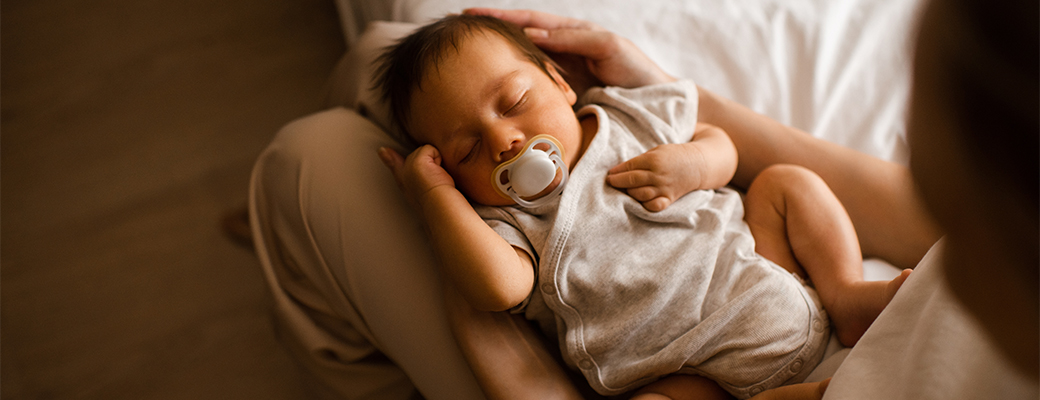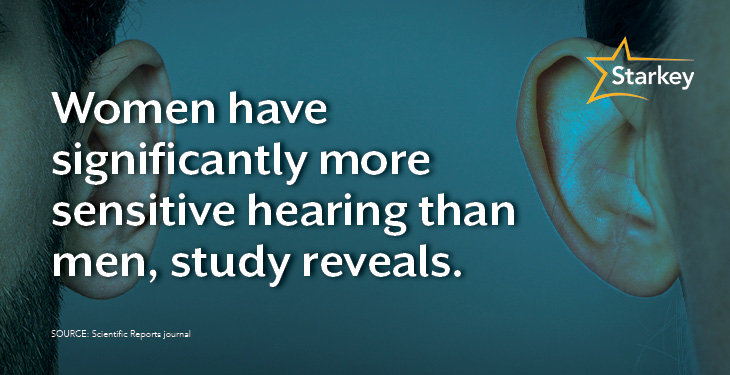It’s widely known that hearing decreases with age, but are there other factors that influence this?
Scientists recently began looking into other components that come into play when it comes to the decrease in hearing sensitivity as we grow older. These elements ranged from biological to environmental.
And per today’s hearing fact, the researchers were surprised to discover how greatly the biological factor of sex affects the level of hearing intensity as we age, with women experiencing more sensitive hearing than men.
Let’s take a look at the study behind this discovery, how the interesting results came to be, and the reasoning behind them.

Study explored how outside factors may affect hearing sensitivity
The global study behind today’s hearing fact was conducted by researchers from France and the UK who administered hearing tests to 450 participants across several countries. The purpose was to see what biological or environmental factors contributed to a person’s hearing sensitivity over time.
They examined the sensitivity of the cochlea in the ear by focusing on how it transmitted brain signals in response to different frequencies and intensities of sound. (Additionally, they considered factors such as hearing declination with age and the fact that the right ear generally hears better than the left.)
The results:
The researchers found that hearing sensitivity was influenced far more by sex than age or environment, with women averaging two decibels more sensitive hearing than men. (For environmental factors that may also impact hearing sensitivity, from altitudes to city-versus-rural living, you can read the full study here.)
So, why would this be? Professor Turi King, a co-author of the study, told University of Bath Communications that women may have more sensitive hearing than men “due to different exposure to hormones during development in the womb, due to men and women having slight structural differences in cochlear anatomy.”
She added that women also perform better in “other hearing tests” and speech perception, which indicates that “their brains are also better at processing the information.”
While scientists are not sure of the reasoning behind this, Professor King cautioned that having more sensitive hearing may not necessarily be an advantage, particularly when it came to noise and the damaging effect it can have on everything from sleep quality to the cardiovascular system. (So, something we can all keep in mind.)
However, the study concluded on a positive note, stating:
“Identifying the drivers behind natural variation in cochlear sensitivity will improve our understanding of hearing loss, hyperacusis, and individual differences in noise tolerance. This comprehensive approach is essential for developing targeted prevention strategies and tailoring hearing aids to diverse populations.”

Our next best step—regular hearing screenings
With several different factors affecting our hearing sensitivity as we age, this study sheds even more light on how important it is to monitor our hearing health as we grow older—regardless of our sex.
A top best practice—visiting a licensed hearing care professional regularly, the same way we would a primary care physician or eye doctor. The American Academy of Otolaryngology-Head and Neck Surgery’s Clinical Practice Guideline: Age-Related Hearing Loss recommends regular screenings for people aged 50 and up.
Hearing care professionals can evaluate our hearing and if it turns out we do have hearing loss, they can help us find the best hearing solution for our individual needs (including hearing aids).
We can also consult with them about hearing protection best practices to assist us with safeguarding our hearing wherever we are—a win-win for maintaining our hearing as we age.
Simply type your zip code in here to find a hearing care professional near you.
